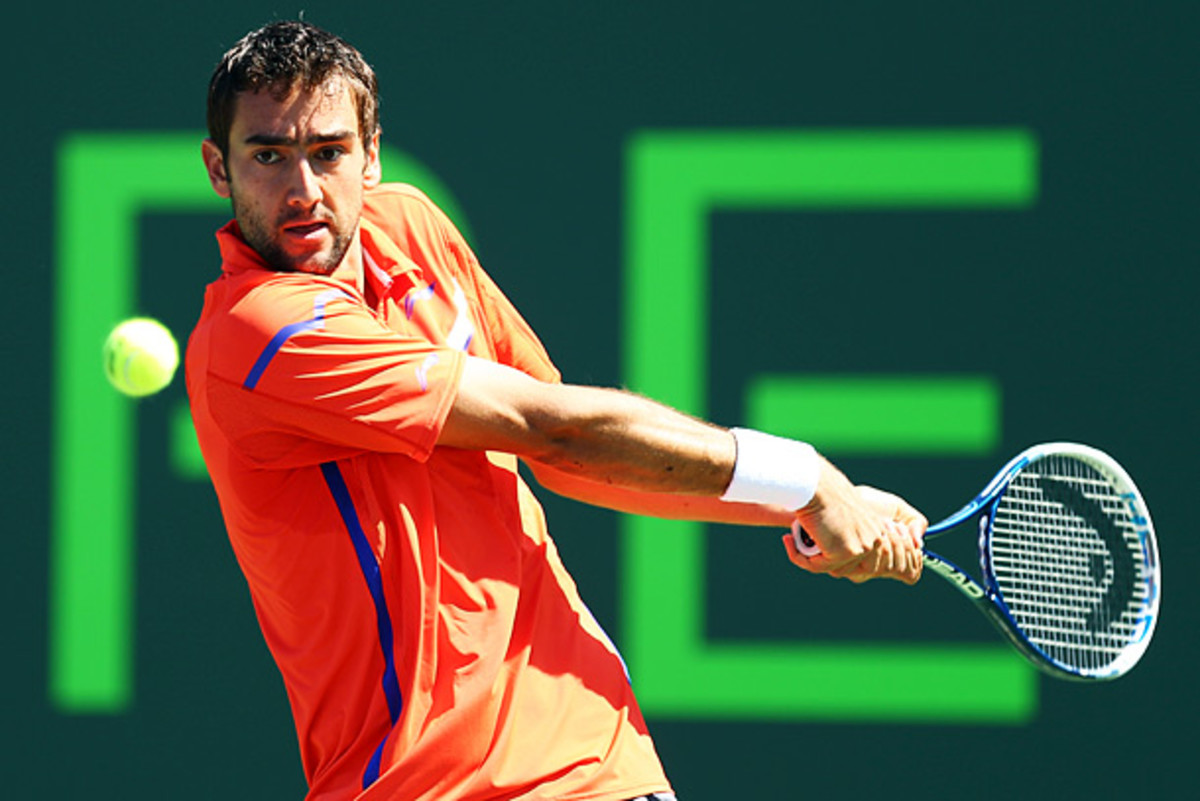Marin Cilic to appeal doping suspension
Marin Cilic isn't eligible to return until Jan. 31, 2014, because of a doping suspension. (Al Bello/Getty Images)
Marin Cilic plans to appeal his nine-month ban for failing a drug test in Munich in May. The ITF announced Monday that an independent tribunal found that Cilic had tested positive for a banned stimulant called nikethamide but reduced a potential two-year suspension to nine months because it determined he ingested the supplement inadvertently.
In a statement released through the Croatian Tennis Federation, Cilic announced his intention to appeal to the Court of Arbitration for Sport and said he has never knowingly or deliberately taken a banned substance.
"I'm not allowed to comment on this case in any detail, but I can confirm that the disputed sample originates from glucose tablets that are purchased in pharmacies in France," the statement read. "I had no knowledge that they contain a substance that is prohibited for competition (although it is allowed out of competition).
"I am disappointed that at this moment I cannot say more about the case, but I'll do it as soon as the legal process is completed."
Cilic, 24, who reached a career-high ranking of No. 9 in 2010, was having a strong season before it was halted by a provisional ban. He won a tournament in Zagreb, Croatia, in February and made the final of the Aegon Championships in London in June. The 24th-ranked Cilic was apparently notified of the positive test before his second-round match at Wimbledon and withdrew from the tournament, citing a knee injury.
Though no confirmed report ever surfaced of his failed drug test, Croatian media learned of the story and Cilic's former coach, Bob Brett, confirmed it. The ITF remained silent about the presence of a failed drug test or any investigation, which is consistent with its policy of only commenting once an investigation has been completed and a finding issued. The circumstances surrounding Cilic's failed test remained shrouded in secrecy, leading Andy Murray to speak out last week and demand more transparency in the ITF's investigative process.
Cilic is the fifth player to face a doping suspension this season and the highest-ranked player to test positive for a banned substance. The tribunal's decision to reduce his ban for an accidental ingestion seems to underline a policy of offering leniency to athletes who fail a drug test over ones who refuse a test. Two other players who tested positive for a banned substance, Barbora Zahlavova Strycova and Fernando Romboli, had possible two-year bans reduced to six months and eight-and-a-half months, respectively, after claiming their ingestion of banned substances was inadvertent.
On the other hand, Viktor Troicki received an 18-month suspension for refusing to provide a blood sample earlier this year in Monte Carlo, where he claimed he was ill and scared of needles and had been excused by the doping officer from having to provide a requested blood sample. Unlike Cilic, Troicki continued to play after being notified that his refusal to be tested constituted a doping violation. In fact, Troicki played a singles match in Umag, Croatia, on the same day his suspension was announced by the ITF, meaning he was not given the benefit of backdating his suspension to the time of the incident. Troicki is appealing his ban to the CAS as well.






